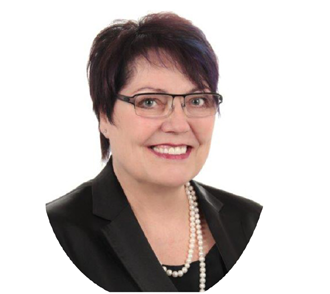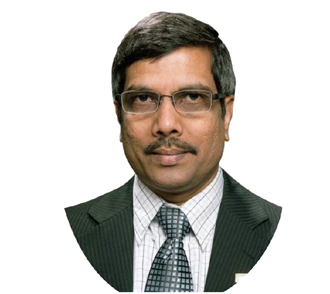IEEE Canada Board of Directors
IEEE Canada President-Elect 2016 Candidates
IEEE Canada Board of Directors has nominated the following candidates for the IEEE Canada President-Elect 2016:
Maike Luiken |
Xavier Fernando |
 |
 |
| http://www.MaikeLuiken.ca |
http://www.ee.ryerson.ca/~Fernando https://www.facebook.com/Xavier2016?ref=bookmarks |
| Maike Luiken, Ph.D., FEIC, SMIEE, is the founding director of the Bluewater Technology Access Centre following eight years as Dean with various portfolios at Lambton College, Sarnia, attracting more than 10 million CAD public research funding. Prior, she was
VP Research Alliances, National Capital Institute of Telecommunications, Ottawa. She has worked in the public and private sectors in Canada, USA and Germany. She has more than 30 years of professional experience in teaching, research and educational administration, leadership and community building; especially in linking industry partners, government agencies and researchers in advanced technology initiatives. Her areas of interest and expertise span diverse technical areas from energy and water to advanced manufacturing and nanotechnology, with particular interest in how progress in ITC enables advances in other disciplines. Maike has extensive board-of-director experience: Nano Ontario, IEEE Canadian Foundation, Sarnia/Lambton Chamber of Commerce, Sarnia/Lambton Workforce Development Board; and Unmanned Systems Canada. |
Xavier Fernando, Ph.D., P.eng, SMIEE, is a Professor at Ryerson University, Toronto. He is the founding director of a well-funded Ryerson Communications Lab. He was a member of Ryerson Board of Governors during 2010-2011 and a TRLabs telecommunications research scholar during 1997-2001. He has authored and co-authored more than 100 research articles and holds two patents. He is the sole author of a book on Radio over Fiber systems and a co-author of the IEEE Communications Society WEBOK, The Wireless Engineering Body of Knowledge. He was an IEEE Communications Society Distinguished Lecturer, delivering about 40 invited talks including keynotes and tutorials worldwide. Xavier and his students have won several awards and prizes nationally and internationally. He was a member of IEEE Communications Society Education Board: Working Group in Wireless Communications, during 2010-2012. He was a program evaluator for the Accreditation Board for Engineering and Technology, USA. He was a finalist for the Top 25 Immigrant Award of Canada in 2012. |
| IEEE Accomplishments and Activities | |
|---|---|
|
REGION 7
SECTIONS/CHAPTERS
SOCIETIES
CONFERENCES
COMMITTEES/BOARDS
STUDENT BRANCH
REPRESENTATIVE
AWARDS
ACCOMPLISHMENTS For all accomplishments I gratefully acknowledge the collaboration and support from many fellow volunteers:
|
REGION 7
SECTION/CHAPTERS
SOCIETIES
OTHER CONFERENCES
AWARDS
|
| Statement | |
|
IEEE members drive engineering, science and technology development. They are vital to meeting our societal and economic challenges to enable a sustainable future. As Region 7 Director it will be my privilege to lead IEEE Canada and further the IEEE goals, vision and mission in collaboration with IEEE volunteers and members by:
Representing the interests of IEEE Canada members, I will make our voice and concerns heard nationally and internationally within and beyond IEEE. |
IEEE Canada has its own advantages and challenges due to the vast geography. The existence of many small Sections and few large Sections makes equally serving the members and maintaining close collaboration between academia, industry, government, and the community at large a challenge. Consequently, my primary areas of focus will be:
|
Interview with Candidates of IEEE Canada President-Elect 2016
An interview with the candidates for IEEE Canada President-Elect for 2016-2017 was recently conducted. Six questions were posed, developed by a team of past presidents and senior volunteers. Candidates could choose to give extended responses to any two of the six.
Question 1: Why did you join IEEE and what was your favourite project in IEEE since? |
|
| Maike Luiken (ML): I joined IEEE as a student at the University of Manitoba in 1984. The IEEE Student Branch was vibrant, and an excellent opportunity for students to work together and support each other. At that time I was forming a Women In Science and Engineering (WISE) Chapter in Winnipeg and encouraging partnership between IEEE and WISE. I re-joined IEEE in the 90s to support the student branch at Algonquin College as branch counselor. My favourite IEEE project? There are many projects I greatly enjoyed working on with many IEEE volunteers, especially students and young professionals: organizing and leading four Region 7 Student Congresses, revitalizing London Section and starting sustainability seminars have to be some of my most rewarding experiences. |
Xavier Fernando (XF): I was treasurer of the IEEE Student Branch at the University of Peradeniya, Sri Lanka, as an undergraduate student in 1987. Since then I have been involved in IEEE in various volunteer and leadership positions. The fundamental reason behind my commitment is the endless opportunities IEEE provided me to serve humanity and to take engineering innovations to society. IEEE also provided ample opportunity to work with young professionals, students, as well as likeminded professionals, which naturally fits my personal interests. Out of the numerous activities I have taken part in, my favourite project is the extended student outreach during my chairmanship of IEEE Toronto Section. We boosted the student membership by about 30% during 2012-13 by actively involving students at all levels of activities. |
Question 2: If elected, how do you think your volunteer experience can help you in this position? |
|
| ML: My volunteer experience includes roles with the IEEE, IEEE Canadian Foundation, IEEE PES and other organizations such as Nano Ontario, Rotary, the Chamber of Commerce, the Workforce Development Board, Unmanned Systems Canada, to name a few. Activities include conference organization; strategy development and implementation; and serving as chair at multiple levels: committees, initiatives, sections and conferences. I also serve as a member of numerous Boards of Directors. My successful contributions in these various roles, especially the IEEE positions, provide me with a solid understanding of the IEEE Canada organization and the skills to take responsibility and lead IEEE Canada. My experience will help me motivate and inspire my fellow volunteers to achieve our common goals. |
XF: I have served IEEE in various levels for the past 28 years; from being a student volunteer to leading the Toronto Section (with 18 Chapters, 5 affinity groups and a number of student branches, representing more than 4,000 members). I have also organized major conferences such as CCECE. In these roles, I have had to interact with numerous volunteers with different personalities and get things accomplished on time, which boosted my interpersonal skills enormously. These experiences also developed my organizational, managerial and critical decision-making skills. Meanwhile, I learned effective time management because simultaneously I was raising my family (with three children) and being active in research and teaching. All these experiences have strengthened me to serve as the President of IEEE Canada. |
Question 3: How would your leadership style and your personal strengths contribute to your success in this position? |
|
| ML: I am bringing, vision, commitment and experience to this role. A vision for IEEE Canada to be recognized for its contributions to Canadian society, and for the members and volunteers to be proud to be part of IEEE Canada. My leadership style is based on listening, and being open, transparent and inclusive. I consider myself a "builder". I believe my personal strengths such as consensus building, motivating, strategic thinking, significant international experience, professional life in the public and private sector, long-term engagement in a number of different IEEE units, skilled analytical/systems thinking, change leadership, a pro-active, optimistic can-do attitude and - most importantly - my people and team building skills, will enable me to be successful. |
XF: My leadership style is encouragement and positive reinforcement. Human beings - especially volunteers - can be motivated by a leader who listens, genuinely recognizes their efforts, understands their difficulties, and is there for them. Also, it is important to understand the skill sets and the professional level of each volunteer. I am generally a very approachable person and pay attention to solving the immediate problem in front of us. I am not into finding fault. So far my approach has helped me. However, IEEE Canada is a very big organization and my new positions will require much more than these, I realize. Fortunately, IEEE Canada is blessed with several veteran pioneers. With their kind blessings and mentoring, and my commitment to constant learning and self-improvement, I hope to meet the given challenges. |
Question 4: Many practicing professionals consider continuing education as essential to staying relevant in their professions. |
|
| ML: Staying current and career advancement are important to most professionals. Technical knowledge, development, regulations and "the way we are doing things" are changing rapidly, thus providing an on-going challenge; consider the development and impact of the Internet of Things, Industry 4.0, robotics, autonomous vehicles, distributed energy generation, to name a few. IEEE Canada`s strength is in providing support for the professional, mostly, at the local level and through on-line resources. Building on our strengths I would engage with sections / chapters / student branches to: - organize more inter-disciplinary workshops and networking opportunities; - maximize distinguished lecturer (provided by the societies) events across Canada; - support the sections and chapters to share events with other locations; that is, to record and deliver seminars and workshops via webinar services and IEEE TV; - grow the IEEE conferences, especially attracting more industry to promote interaction between it, academia and other organizations; - partner with other engineering organizations to provide continuous education, for example the Engineering Institute of Canada; - utilize the many training and education offerings that IEEE has available, including the Centre for Leadership Excellence; - promote communities of interest - using the IEEE Collabratec tool. It allows collaboration between IEEE and non-IEEE members. |
XF: IEEE has many continuing education opportunities, e.g., short courses, university and corporate partner programs, and certificate programs. It is also rich in online resources like webinars, multimedia tutorials, and podcasts. The IEEE eLearning Library is such a premier online collection. The IEEE Continuing Education Providers Program offers members a discount on various educational programs; IEEE is also an authorized provider of Continuing Education Units for technical professionals. Having served in the COMSOC Educational Activities Board and as part of the IEEE Wireless Communications Certifications Program, I am well aware of these opportunities. They need to be better advertised. The contents must be enriched and be made more relevant to practicing professionals. More opportunities have to be explored. |
Question 5: What are the three items that you would include in the strategic plan for IEEE Canada? Explain the importance of each. |
|
| ML: IEEE Canada is a member-based organization where volunteers provide activities and support for the members. My IEEE Canada strategic plan will include: 1. Strengthen, grow and inspire the volunteers of IEEE Canada. Without the many committed volunteers, IEEE Canada cannot deliver programming to its members. Actions include: greater volunteer recognition such as awards and conference attendance passes; support for sections and chapters for volunteer recruitment. 2. Support Section Vitality. Most IEEE Canada member services are provided at the section level - strong sections are in a better position to provide member services and engage with local communities. Actions include: partnerships with other professional and community organizations such as provincial engineering bodies, industry associations, government labs and Rotary International. Also, support for facilitating locally accessible activities of interest and relevance to members' careers and professional development as well as the wider community. 3. Enhance the visibility and impact of IEEE Canada through increasing collaborative activities between industry, business organizations, academia and the IEEE. Engineering and science innovation are vital to Canada's continuing development. It is important for the IEEE community to share its knowledge and experience with the public - using common language - for its full potential to be realized. |
XF: Canada is experiencing an economic downturn and the loonie is in free fall. As a result, IEEE Membership dues have been steadily increasing (already up by ~30%) while many of our members are losing jobs. This is a crisis stage that may last for a few years. Our membership is likely to decrease in the immediate future.IEEE Canada has to strategically take several measures to not only address our own economic situation, but also to help and support our loyal members in trouble. One such initiative would be providing membership benefits at a subsidized rate for past members who could not renew their memberships. However, this will require further study. A few more primary focus areas would be: 1. Cost-cutting measures: We need to do a detailed, critical self-study to see how cost cutting can be done without significantly impairing our functionality. This has to be done in a smart way to reduce non-essential expenses while maintaining our key services unaffected. 2. Increased value for Members: Retention of IEEE members, who are our lifeline, and who heavily depend on the tangible return they receive, especially during difficult times. Our strategic plan should include increasing the value of their membership. For example, we should provide more networking and professional development opportunities, and more recognition. 3. Provide additional training and continuing education opportunities for unemployed/under-employed engineering professionals: This is essential for them to get back on their feet. For this, IEEE Canada may have to work on developing more professional courses, on-line learning resources, hands-on workshops and other training activities. |
Question 6: What must IEEE Canada do to stay relevant to all its members? |
|
| ML: I would propose a process of engagement with members and volunteers, since "staying relevant to all its members" is a moving target. For example, the new Canadian federal government Tri-Agency Open Access Policy is changing the landscape for access to publications. The questions are: 1 How do the member benefits that IEEE Canada provides align with the expectations of the members? 2 Where are the points of non-alignment? 3 How can we address the un-met member expectations? I propose that we engage in this process and act on the results. |
XF: The world is changing in the way technical knowledge is acquired, distributed and disseminated. Social media has become the new norm of communication. In order to remain relevant, our cyber presence must be enhanced. This is the future and it will actively engage professionals and students in IEEE activities. Not only information about technical activities, but technical information itself is better made available through cyber media using online conferences, webinars and podcasts. Recently, the improved bandwidth/reliability of the internet has made online technical presentations and webinars very successful, connecting presenters/audiences even in developing countries. Our meetings can also use more (multimedia) teleconferencing to be more time and cost effective. Another area to remain current is having more focus on student-centric activities and early recruitment. Students are our future; they have to be reached out to and be given a chance to experience the benefits of IEEE at an early stage. Young students are often filled with new ideas, doing things more effectively using new technologies. They will naturally make IEEE Canada more up-to-date and current. The young and active members, who are given good responsibilities in IEEE, are likely to remain active, productive volunteers for a long time. Another topic is "open access publication". The scientific community, including funding agencies like NSERC, is leaning towards open access publications. We, IEEE Canada, should acknowledge and facilitate open access publication as much as possible to remain current. |
| Vote today http://www.ieee.org/elections | |
Contributed by Bruce Van-Lane, IEEE Canadian Review
IEEE Authors and Canada's Open Access Policy
IEEE's publication policies enable Canadian research authors to comply with requirements of the Tri-Agency Open Access Policy on Publications issued in late February 2015. This policy requires free and open access (OA) to research funded by grants from any of three agencies: the Canadian Institutes of Health Research (CIHR), the Natural Sciences and Engineering Research Council of Canada (NSERC) and the Social Sciences and Humanities Research Council of Canada (SSHRC).
The policy specifies that the public access requirements apply to articles published in peerreviewed journals. (Articles submitted to conference proceedings are not specified.) Grant recipients must acknowledge agency contributions in all peer-reviewed publications, quoting the Funding Reference Number (FRN for CIHR or Application ID for NSERC, SSHRC). Canada's policy requires that grant recipients must make their work publicly available in one of two ways, both of which are compatible with IEEE's author posting policy:
- Publication in "Gold" OA Journals
From Tri-Agency OA Policy: "Grant recipients can publish in a journal that offers immediate open access or that offers open access on its website within 12 months. Some journals require authors to pay article processing charges (APCs) to make manuscripts freely available upon publication. The cost of publishing in open access journals is an eligible expense under the Use of Grant Funds."- IEEE policy: Sometimes called "gold" open access, payment of an APC to make an article freely available immediately upon publication is available in several new, fully open IEEE journals. IEEE's traditional journals also provide gold OA for individual articles through a program called "hybrid" open access. (See IEEE Open Access Publishing Options for more information.)
- Deposit in Online Repositories
From Tri-Agency OA Policy: "Grant recipients may meet requirements by depositing their final, peer-reviewed manuscript into an institutional or disciplinary repository that will make the manuscript freely accessible within 12 months of publication. It is the responsibility of the grant recipient to determine which publishers allow authors to retain copyright and/or allow authors to archive journal publications in accordance with funding agency policies."- IEEE policy: Authors' self-archiving of their articles, sometimes called "green" open access, is permitted under IEEE's author posting policy. PSPB Operations Manual Section 8.1.9 states: "Authors and/or their employers shall have the right to post the accepted version of IEEE-copyrighted articles on their own personal servers or the servers of their institutions or employers without permission from IEEE ... [and] IEEE allows its authors to follow mandates of agencies that fund the author's research by posting accepted versions of their articles in the agencies' publicly accessible repositories." Authors may deposit their own version (or "postprint") of a peer-reviewed article in a publicly accessible repository operated by their institution or in any repository that is acceptable to the CIHR, NSERC or SSHRC. (See IEEE FAQ for more information.)
Implementation Dates
The CIHR updated its policy in January 2013 to require public access to its funded research, and the policy applies to all CIHR grants awarded 1 Jan. 2008 and onward. For research funded in whole or in part by NSERC or SSHRC, the new policy applies to all grants awarded 1 May 2015 and onward.
Open Data Requirements
Of the three agencies covered by the policy, only CIHR requires that research authors make their supporting data publicly available. CIHR requires that authors deposit "bioinformatics, atomic, and molecular coordinate data into the appropriate public database (e.g. gene sequences deposited in GenBank) immediately upon publication of research results." Examples of research outputs and corresponding public repositories are provided in the Annex. Funded researchers are required to retain original data for five years after the end of the grant.
Enforcement
The grant recipient is responsible for ensuring adherence with the Tri-Agency policy. According to the Tri-Agency web site, "in the event of an alleged breach of agency policy, the process outlined in Section 6.1 of the Tri-Agency Framework: Responsible Conduct of Research may be followed."
Other Online Resources Publishing Documents for OA Authors - IEEE's Open Access Publishing Agreement and the CC BY License
SHERPA-RoMEO - Index of publishers' policies
For further information on IEEE policies, please e-mail ieee-open-access@ieee.org
Membership Dues in Special Circumstances
IEEE realizes that economic circumstances may impact some members' ability to pay the full amount of IEEE membership dues. For this reason, the following special circumstance categories have been established. Special circumstances are not available to Student members. Only one category may be claimed in any year.
- Minimum Income Provision
- Retired Provision
- Unemployed Provision
- Permanently Disabled





